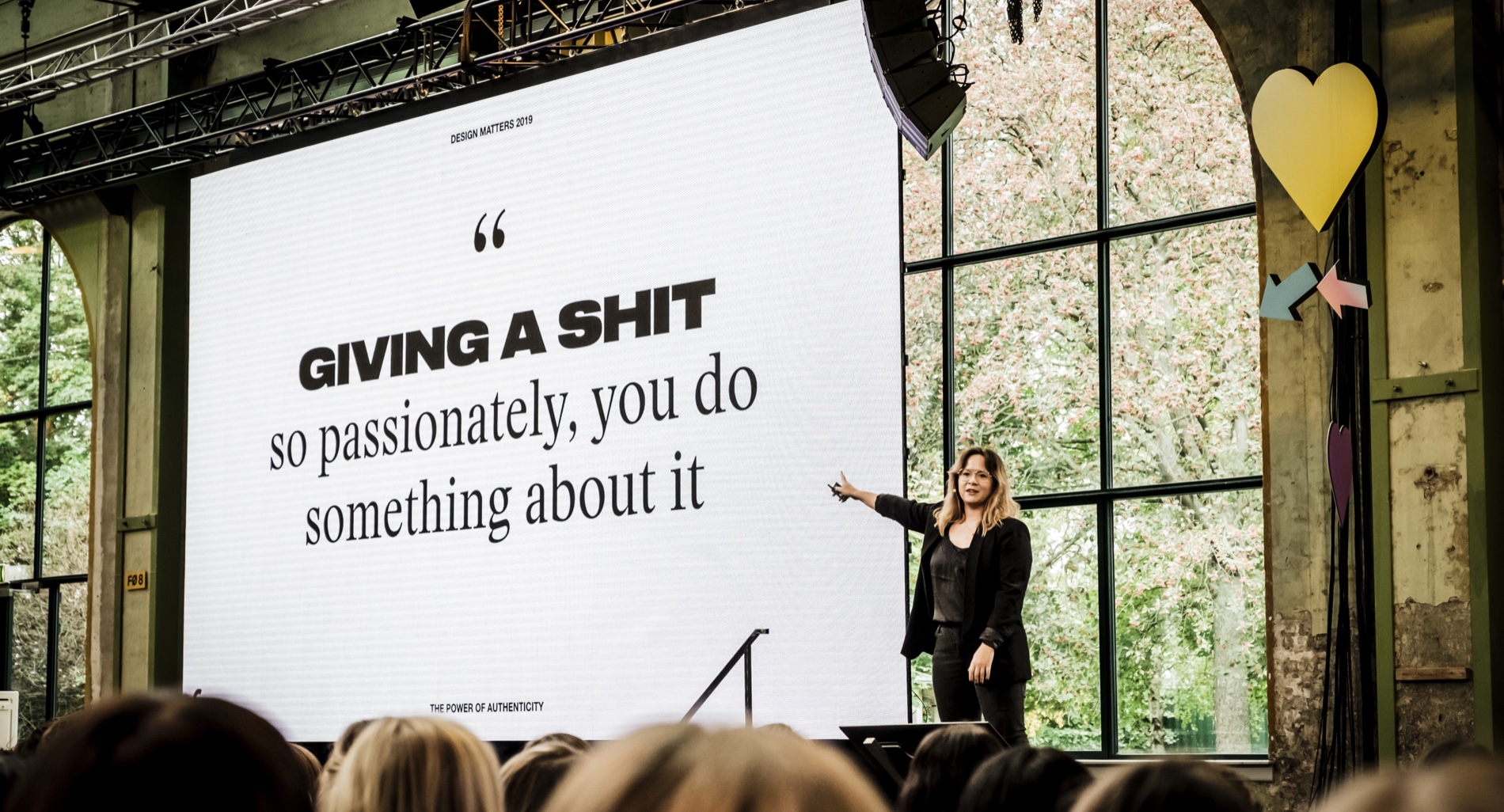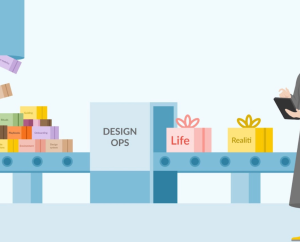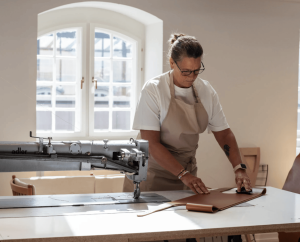Based in San Diego, she in an Art Director working in the music and design industry. She was Senior Design at Girlboss, a platform and a community made to support, empower, and redefine success for Millenial women. Sydney Banta stands out for her amazing creative and communication skills, as well as for her passion and resilience.
She spoke at Design Matters 19, reflecting on the power that authenticity has in today’s world. We met with her to discuss the direction Feminism is heading towards in design, and what issues are important to address as a designer. But also to better understand what it means to be a Feminist designer, and what difficulties women in the design industry are still forced to face today.
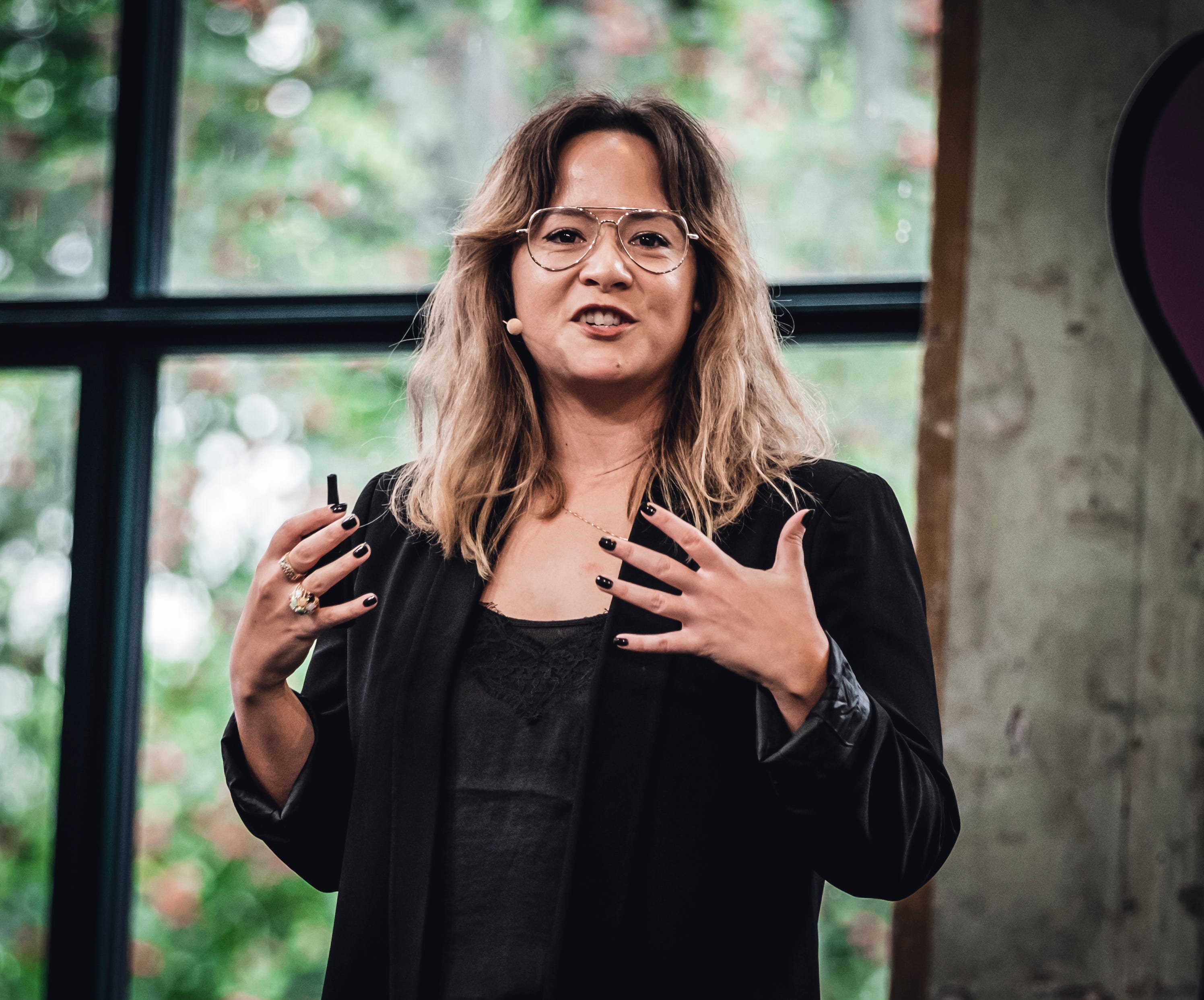
You recently left Girlboss. What did you learn on a professional level from working as a Senior Designer there?
The amount of things you learn technically doesn’t really change so much. What changes is how you see the world. Girlboss helped me expand my point of view and find my style and my voice. I now realize and recognize that I am an edgy, more powerful designer. I’m here to make an interesting, experimental type of work.
The experience at Girlboss helped me get to that point. And each job I’ve had made me learn something new about myself. I’ve realized I have leadership capabilities and that I can be more resourceful. A lot of people get so surprised when I say “yeah, I can design, I can also be a creative director, I can also edit videos” or “Oh, do you need a social media strategy? Sure.” I gathered all that experience just from having so many different clients over the years. Girlboss was the top of the ladder for me in a lot of ways.
And did you learn about yourself?
For such a long time I didn’t really know who I was as a designer, I didn’t know what my voice was. That’s often what happens when you work under an Art or Creative Director for so long; you can lose sight of your own ideas and belief system. Being the Senior Designer at Girlboss forced me to take a look at the type of work I want to make and believe in. I learned to be more experimental. A lot of us fear the unknown, but the unknown is what makes everything exciting and new. So, for me, the main challenge was embracing the unknown and knowing that not having all the answers is ok.

At Design Matters 19 you talked about the power of authenticity. What is the best way to deliver a message effectively to an audience today?
I think that today there’s a spotlight on humility and humbleness, but in a way that it’s not staged. The Instagram aesthetic type and extremely curated feeds are over. Nowadays, to have a really effective message, you have to realize that you’re talking to people, and that people want to be talked to in a way in which they can feel you relate to them. Instead of talking at people, you’re having conversations with people. It’s more about us, as a community.
When you’re trying to sell something, people know if they’re being taken advantage of, if something is not authentic. We are inherently able to detect what is real and what is not. Our gut instincts and the things we gravitate towards guide us to detect the words and the communication style that is not forced or faked.
You also talked about the colors, shapes, and typeforms which contemporary Feminist design is using today, but that is likely to change tomorrow. How do you think feminist design will change in the future?
I think things are going to become more androgynous, we’re going to go further into that space where things are not being clearly labeled as masculine or feminine. I would love to see a world where softer organic shapes and pastel colors, that we equate to as being feminine, went further down the masculine loophole. It could be something encapsulating both the soft and hard edges of life.
I love playing with contrast and bringing together worlds that have always been really far apart. I would think the trend will go towards worlds where feminine and masculine design almost doesn’t exist.
Design is already getting further away from a gender based labeling system. Males, females, transgendered, non-binary, we all have feelings of soft and hard, light and dark. We live in duality. So I hope that the design realm will reflect the duality in which we all live in.

Do you think that Feminists designers communicate differently from the mainstream communication style?
The mainstream system is deep in an old way of thinking that maybe doesn’t reflect who we are now. I think the way feminist designers and the younger generation speak and see the world influences how they make things visually. There are strong female and non-binary designers doing more experimental work, which will eventually bleed into mainstream.
I think designers nowadays are almost double downing on their personal ethos, looking at the world and starting to change how they do things. I think we’re contributing to something new, such as different color relationships and bold fonts to represent the things that were seen as classically feminine. I think it’s a process of reclaiming power, which is now happening in a visual sense.
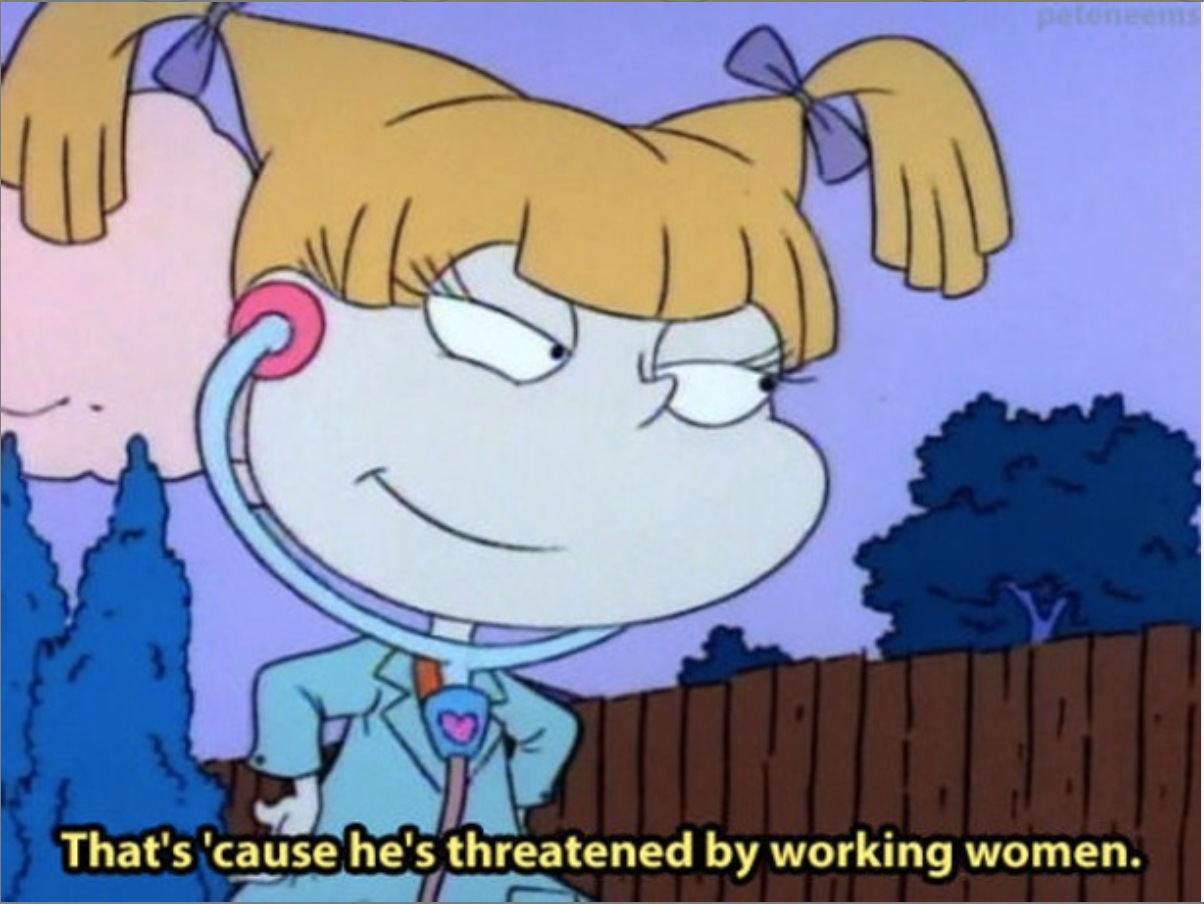
What difficulties have you encountered being a female designer?
I don’t feel like female designers are trusted as much as they should be off the bat. Women almost have to go through double the amount of hoops to jump through in order to do the same job.
If someone challenges me I will meet and even exceed what is asked from me. For instance, one of my old Creative Directors was once upset by the way I shot some still photography. He was so upset that he told me to edit up in Photoshop about 400 photos by noon the next day. And he told me this at 3pm the day before. I stayed up all night, stopped at 6 am, sent him all the photos, edited and shot. And I was done before his deadline.
In these petty type of situations you almost have to overprove yourself. In a way, that messes with your head too, because it forces you to question yourself. You ask yourself “do I know what I’m doing?”. And once this starts to happen, you enter a cycle of self doubt.
I’ve also dealt with Creative Directors taking credit for the work I’ve done. This is nothing new, but it wears on you. We are all creatives trying to make a name for ourselves or have some reputation. But when your hard work is being taken by other people or ripped apart and then like turned into some weird Frankenstein that doesn’t reflect what you started with in the first place, that really wears on your soul.
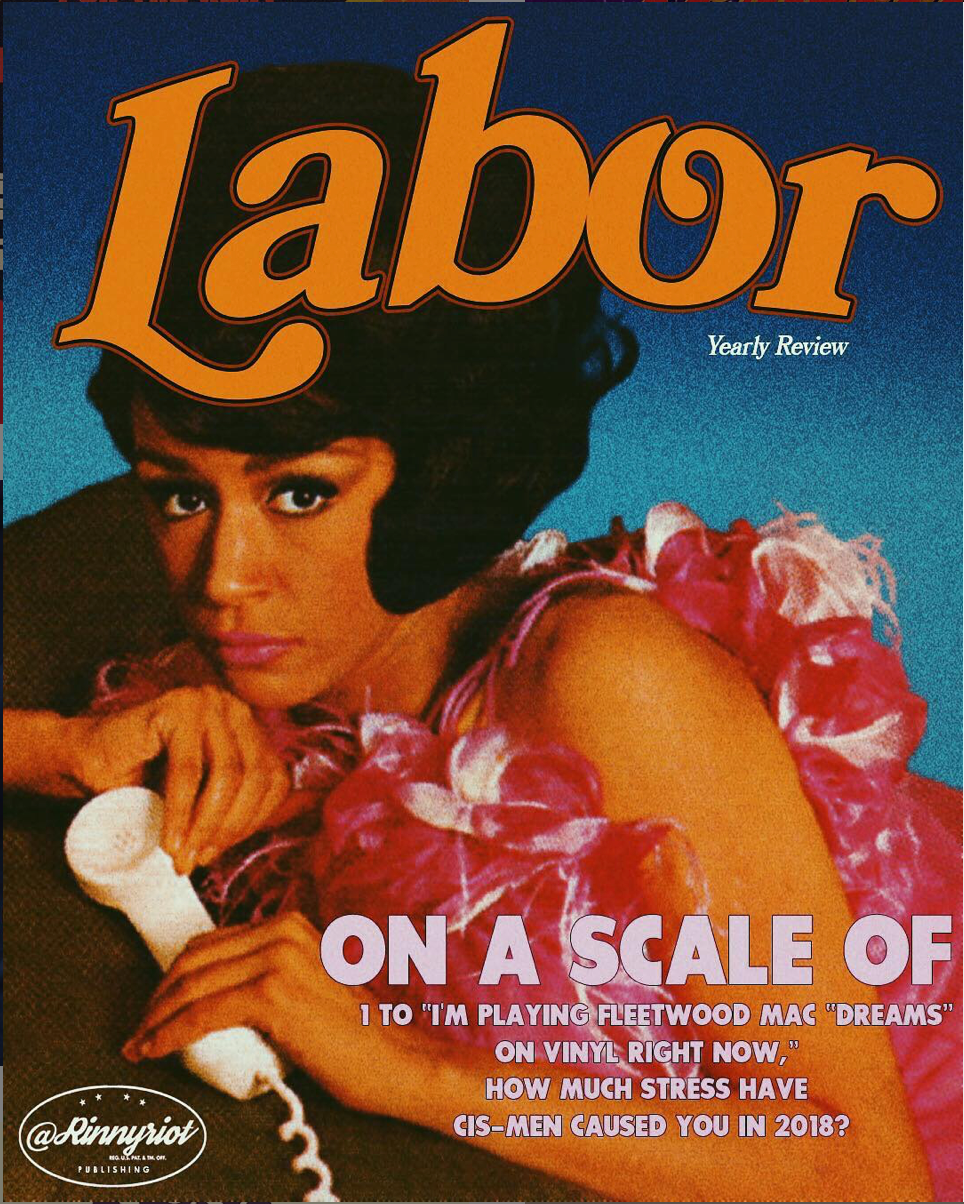
Do you think this has changed now that you have been in the industry for a long time?
I’ve spent 10 years in the industry, but it still feels as if I started yesterday. I don’t know if it’s the types of job I’ve taken over the years or if my own “mental game” has kept myself in more subordinate roles. Perhaps if I changed my mindset a little bit, thinking “yeah, I do have a lot to say! I do know what I’m doing”, it would perhaps be different.

What do you think modern Feminism is not addressing but should pay more attention to?
I think we need to address how we see men. They are in this world and they can help us amplify our message. We need them to do so. We live in a world where all different types of people exist, so we should address this balance a little bit better. Feminism has progressed in the past few years, however, we are still dealing with female competitiveness. It might not be so blatant, but it has become a lot pettier.
With so much happening regarding the environment and economy, we’re getting to the point where we need to rely on each other more, instead of segregating ourselves. A group of people might know something that another group doesn’t know. We should have a better culture of sharing and working together in a less divisive way.
Education is another topic which modern Feminists should address. I used to work for a girls education nonprofit organization and I know there’s a lot of work to do when we ask ourselves questions like “how are we educating girls younger than us to be leaders?”, “What kind of information are we teaching them?”, “Is there better information?”. Your education can be your mental power. But you also have your physical power. What do you do with the two? How do they come out in the world? How are they expressed? How are they treated? And then are we doing it in the best way?
Lastly, I would like modern Feminism to address the military because I don’t hear enough about the female experience within the military. In the States, almost all males between 18 through 25 have to register with Selective Service, making them potentially subject to military conscription. This is not a requirement for women, but if it were, would the idea of serving your country be less masculine? When you think “military” you think of it as being a male experience, but there are some very powerful and respected women in the armed forces. Living within gender constructs and having to be either this or that doesn’t leave much room for the in between, which is where I think a lot of the answers lie.

